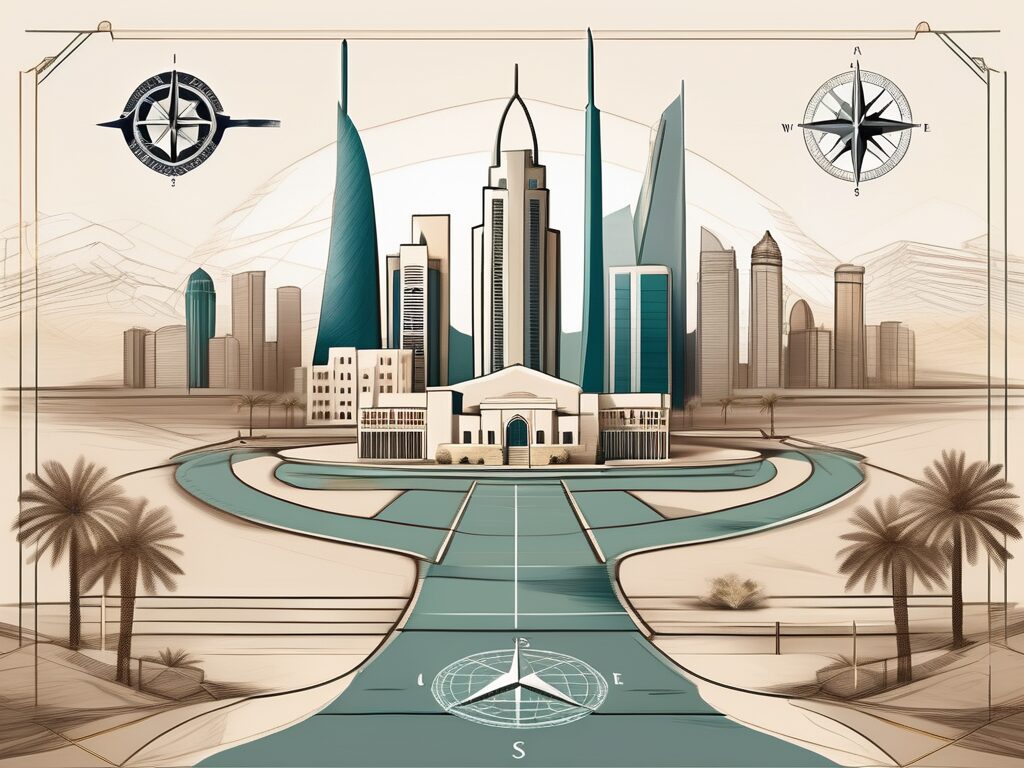In the ever-evolving landscape of global education, the United Arab Emirates (UAE) has been making significant strides. A key driver behind these advancements is the government’s proactive approach to shaping education policies. These policies, often a blend of traditional values and modern techniques, have a profound impact on the education sector in the UAE. This piece will delve into the various government policies that have been instrumental in shaping the UAE’s education system.
The Vision 2021 National Agenda
The UAE government launched the Vision 2021 National Agenda with the aim of developing a first-rate education system. This ambitious plan focuses on transforming the educational landscape by integrating advanced technology and fostering innovation.
One of the key objectives of this agenda is to ensure that UAE students excel in international assessments. This is a clear indication of the government’s commitment to improving the quality of education and ensuring that it is on par with global standards.
Moreover, the Vision 2021 National Agenda aims to equip students with the skills needed for the future job market. This is achieved by incorporating critical thinking, creativity, and problem-solving into the curriculum.
Emphasis on STEM Education
As part of the Vision 2021 National Agenda, there is a significant emphasis on Science, Technology, Engineering, and Mathematics (STEM) education. The government recognises the importance of these subjects in driving innovation and economic growth.
STEM education in the UAE is not just about imparting knowledge. It’s about nurturing a scientific mindset among students. This is akin to the approach taken by countries like the USA and UK, where STEM education is seen as a catalyst for innovation.
Integration of Technology
Another key aspect of the Vision 2021 National Agenda is the integration of technology in education. The UAE government is investing heavily in digital infrastructure to facilitate e-learning.
This approach is reminiscent of the ‘EdTech’ revolution sweeping across countries like South Korea and Singapore. By embracing technology, the UAE is ensuring that its students are well-prepared for the digital age.
The Moral Education Programme
In 2017, the UAE government introduced the Moral Education Programme across all schools. This programme aims to instil moral values and ethics among students, thereby fostering a sense of community and national identity.
The Moral Education Programme covers four main pillars: character and morality; the individual and the community; civic studies; and cultural studies. This comprehensive approach ensures that students are well-rounded individuals who contribute positively to society.
Similar to the character education programmes in countries like Japan and Finland, the Moral Education Programme in the UAE is a testament to the government’s commitment to holistic education.
Character and Morality
The first pillar of the Moral Education Programme focuses on character and morality. The aim is to nurture students who are honest, tolerant, and respectful. This is in line with the UAE’s cultural values and traditions.
By focusing on character and morality, the UAE is following in the footsteps of countries like New Zealand, where character education is a key part of the curriculum.
The Individual and the Community
The second pillar of the Moral Education Programme focuses on the individual and the community. The aim is to foster a sense of social responsibility among students. This is achieved by teaching them about their rights and responsibilities as citizens.
This approach is similar to civic education programmes in countries like Canada and Australia, where students are taught about their role in society.
Conclusion
The UAE government’s proactive approach to education policy has been instrumental in shaping the country’s education system. The Vision 2021 National Agenda and the Moral Education Programme are prime examples of this.
By focusing on areas like STEM education, technology integration, and moral education, the UAE is ensuring that its students are well-equipped for the future. This approach is in line with global trends, making the UAE’s education system a model for other countries to follow.
As we move further into the 21st century, it will be interesting to see how these policies evolve to meet the changing needs of students and the job market. One thing is for sure – the UAE government’s commitment to education is unwavering, and this bodes well for the future of education in the country.
Elevate Your Teaching Career with IPGCE
As the UAE continues to innovate its education system, educators must also evolve to meet the new standards and opportunities. If you’re looking to enhance your qualifications and thrive in the international education landscape, the International Postgraduate Certificate in Education (iPGCE) is your gateway to success. With the iPGCE, you can overcome the common barriers of stringent qualifications, limited career progression, professional isolation, and the need for a deeper understanding of global education systems. Embrace the flexibility of online study and join a community that boosts your professional connections. Take the next step in your teaching career and Join the UK’s #1 Teacher Training Course today.

